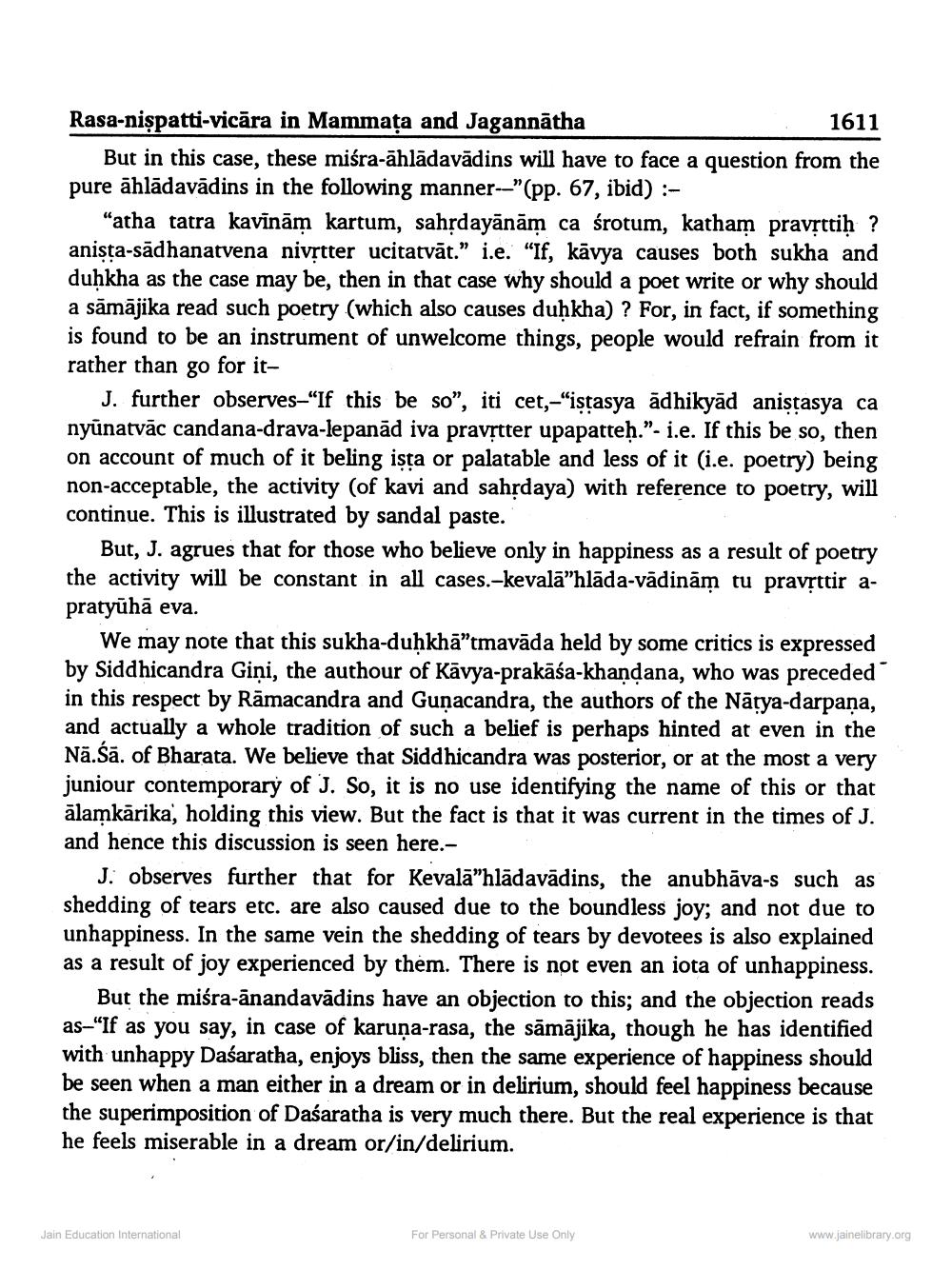________________
Rasa-nişpatti-vicāra in Mammaţa and Jagannātha
1611 But in this case, these miśra-āhlādavādins will have to face a question from the pure ahlādavādins in the following manner--"(pp. 67, ibid) :
"atha tatra kavīnām kartum, sahrdayānām ca śrotum, katham pravșttih? anista-sādhanatvena nivętter ucitatvāt.” i.e. "If, kävya causes both sukha and duhkha as the case may be, then in that case why should a poet write o a sāmājika read such poetry (which also causes duḥkha) ? For, in fact, if something is found to be an instrument of unwelcome things, people would refrain from it rather than go for it
J. further observes-“If this be so", iti cet,-“istasya adhikyād anistasya ca nyunatvāc candana-drava-lepanād iva pravrtter upapatteh."- i.e. If this be so, then on account of much of it beling ista or palatable and less of it (i.e. poetry) being non-acceptable, the activity (of kavi and sahrdaya) with reference to poetry, will continue. This is illustrated by sandal paste.
But, J. agrues that for those who believe only in happiness as a result of poetry the activity will be constant in all cases.-kevala"hlāda-vādinām tu pravrttir apratyūhā eva.
We may note that this sukha-duḥkhā”tmavāda held by some critics is expressed by Siddhicandra Giņi, the authour of Kavya-prakāśa-khandana, who was preceded in this respect by Rāmacandra and Gunacandra, the authors of the Nārya-darpana, and actually a whole tradition of such a belief is perhaps hinted at even in the Nā.Šā. of Bharata. We believe that Siddhicandra was posterior, or at the most a very juniour contemporary of J. So, it is no use identifying the name of this or that alamkārika, holding this view. But the fact is that it was current in the times of J. and hence this discussion is seen here.
J. observes further that for Kevalā”hlādavādins, the anubhāva-s such as shedding of tears etc. are also caused due to the boundless joy; and not due to unhappiness. In the same vein the shedding of tears by devotees is also explained as a result of joy experienced by them. There is not even an iota of unhappiness.
But the miśra-ānandavādins have an objection to this; and the objection reads as-"If as you say, in case of karuna-rasa, the sāmājika, though he has identified with unhappy Daśaratha, enjoys bliss, then the same experience of happiness should be seen when a man either in a dream or in delirium, should feel happiness because the superimposition of Daśaratha is very much there. But the real experience is that he feels miserable in a dream or/in/delirium.
Jain Education International
For Personal & Private Use Only
www.jainelibrary.org




